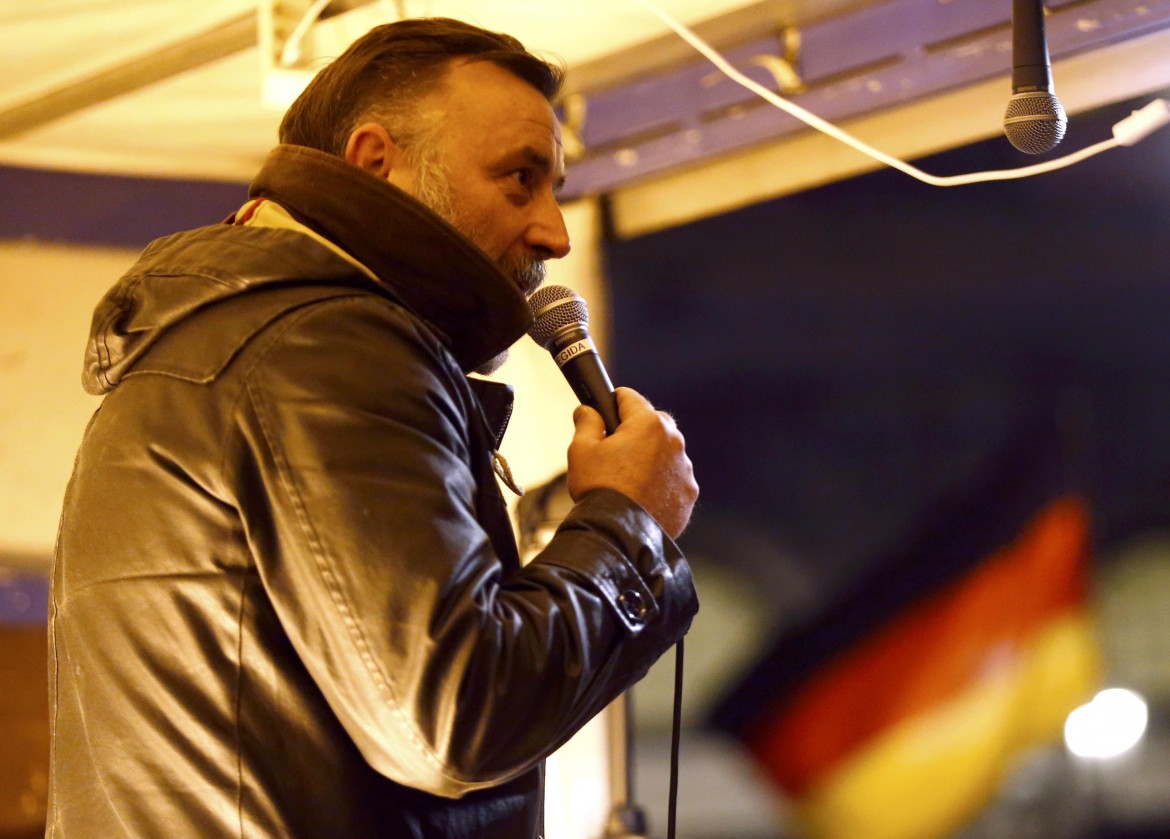Pegida nazis return to Dresden
Germany Xenophobic racism took to the streets of Dresden this week, presenting Germany with its toughest challenge since reunification.
 Pegida protest in Dresden – Xinhua/LaPresse
Pegida protest in Dresden – Xinhua/LaPresseGermany Xenophobic racism took to the streets of Dresden this week, presenting Germany with its toughest challenge since reunification.
Few seemed to pay much attention when, in early September, Hans-Georg Maassen, head of the Office for the Protection of the Constitution, the agency that watches over domestic radical groups, warned of the risk represented “by the development of right-wing terrorism” in Germany.
Maassen’s words, reported by Der Tagesspiegel, announcing a “dangerous radicalization of anti-immigrant formations,” came after Chancellor Angela Merkel opened up to refugees, primarily Syrians, who were filling headlines across Europe. Demonstrations supporting asylum seekers were taking place all over the country. And instead of a “Brown Army Faction” German citizens seemed committed to true solidarity, with lines of people assembling to look after the arriving refugees.
Despite the racist attacks that summer, the danger seemed to have been exorcised. Only after the attempted murder of a candidate for mayor of Cologne by a former militant neo-Nazi, and the return of the xenophobic and anti-Muslim group PEGIDA did it seem that things weren’t so kumbaya after all.
Initially puzzled by the welcoming stance from Merkel’s conservative party and by the mass support for refugees, the extreme right has re-formed its ranks, ready to reappear as soon as the indices of popularity for the chancellor give way to anxiety and fear.
PEGIDA — Patriotic Europeans Against the Islamization of the Occident (German: Patriotische Europäer gegen die Islamisierung des Abendlandes)— organized an event on Monday in central Dresden to mark one year since the birth of the anti-Islamic group.
About 20,000 people gathered and faced off against anti-fascist counter-demonstrators, on several occasions erupting in brawls. The crowd included the usual mix of young neo-Nazis and those a bit on in years. Some hoisted signs in favor of Hungarian Prime Minister Viktor Orbán, who became a darling of the extreme right in Europe by virtue of his xenophobic politics.
In addition to a speech by the founder of PEGIDA, Lutz Bachmann, who posts photos of himself dressed as Hitler on Facebook, the more anticipated stage appearance was that of the Turkish-German writer Akif Pirinçci, a popular author of detective stories notable for their homophobia and ultra-conservative ideas.
Pirinçci did not disappoint the crowd. He stated that all refugees should be expelled, then added that “of course there would be other alternatives, but unfortunately the concentration camps are no longer in operation.”
The words led Bertelsmann, Pirinçci’s publishing house, to announce they will pull his books from the libraries and dissolve his contract, and the prosecutor in Dresden opened an investigation against him for justifying Nazism, a charge that in Germany carries a possible sentence of three to five years in prison.
But it’s difficult to believe the threat of racism can be defeated with the criminal code. Tatjana Festerling, a PEGIDA candidate in Dresden municipal elections, won 10 percent of the vote, while the anti-immigrant Alternative for Germany polls at 8 percent nationally.
This might be Germany’s most complex challenge since the reunification.
Originally published in Italian at il manifesto on Oct. 22 2015 here: http://ilmanifesto.it/i-neonazi-di-pegida-in-piazza-contro-migranti-e-angela-merkel/
I consigli di mema
Gli articoli dall'Archivio per approfondire questo argomento
